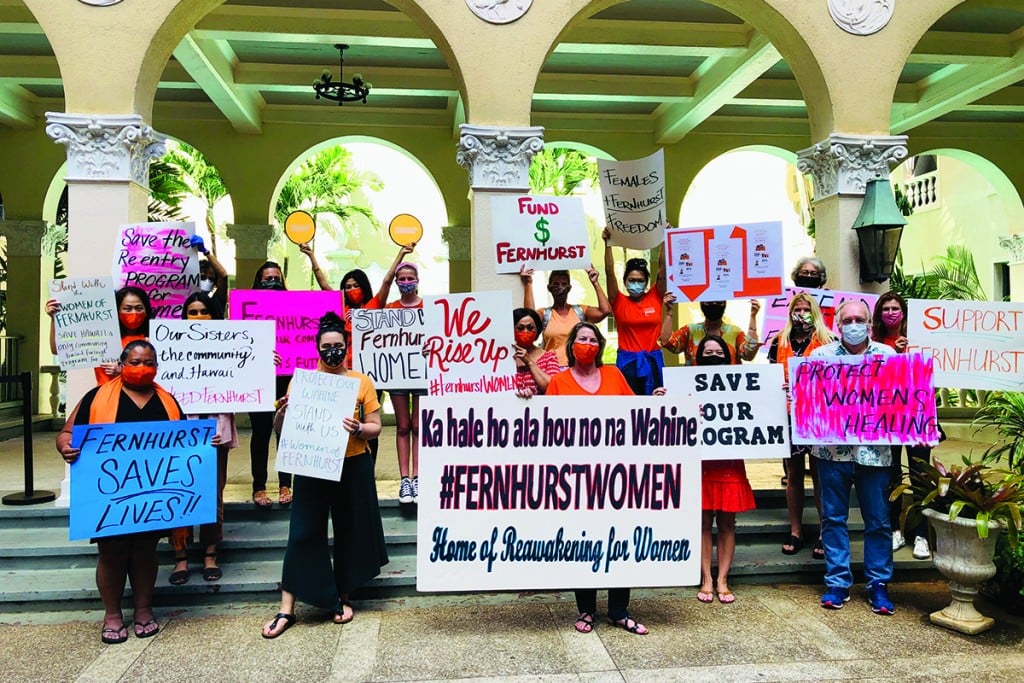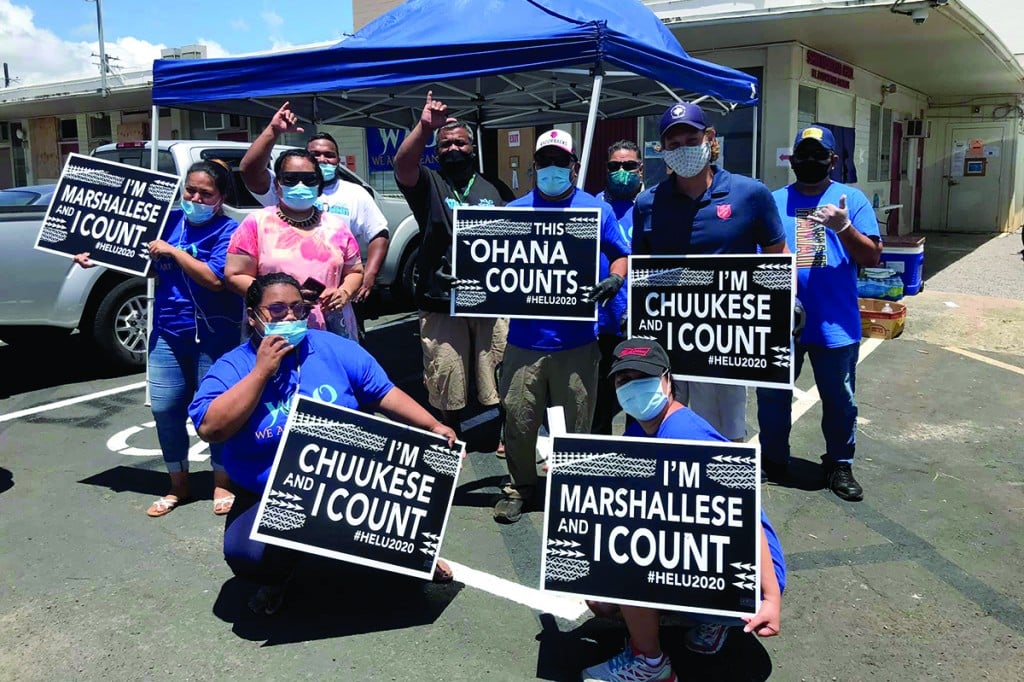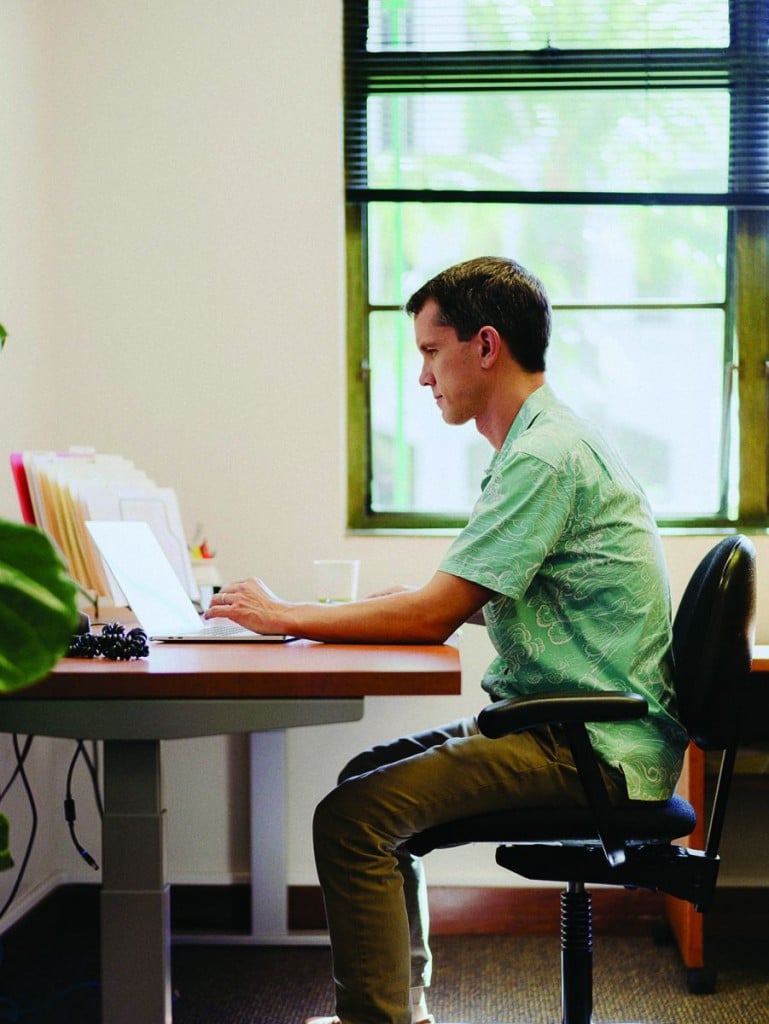YWCA Fernhurst Women’s Furlough Program: Women Supporting Women Reentering the Community
When the Fernhurst program faced headwinds in June, the community rallied behind it, supporters coming from across the state and the Mainland to save the vital program.

As parents pivoted to care for their children while working from home, masks became an essential fashion accessory, and shelves were inexplicably bare of yeast and toilet paper, the breaking news that the Fernhurst Women’s Furlough Program was in danger of being shuttered landed as the bridge too far. Phones rang, emails and text messages flew, and people across the state organized—sending a loud message to lawmakers, the Department of Public Safety, and their neighbors that this essential program saves lives and families. It must not go away.

Photo: Courtesy of YMCA of Oahu
Fernhurst is the only women’s furlough program in the state, providing a home and an array of critical wraparound services for incarcerated women slated for release. It’s a place where women start to heal, reconnect with their family, and begin the journey of building a life beyond prison bars. Kepola Dudoit, a graduate of the Fernhurst program and a YWCA employee, knows that struggle personally. “Women are in survival mode, even before prison, and then in prison, we have mental health issues,” she says. “When we come out, we have so much guilt and shame. But when we get to Fernhurst, we feel safe, and the trust barriers start breaking down.”
Fernhurst is the only program to offer wraparound services such as counseling, job search support and readiness, life-skill coaching, professional attire through its Dress for Success program, and help reuniting with family. “We come out of prison with nothing. Nothing. Just the clothes we went into prison with,” Dudoit says. “Dress for Success gives us confidence, we know we’re going to look good at our job interview, and our counselors work with us on how to fill out the application, how to talk during the interview.”

Photo: Courtesy pf YMCA of Oahu
When word spread that Fernhurst was in danger, volunteers stepped to the plate, even launching an online petition to save the facility. “We didn’t know about the petition until volunteers alerted us,” says Noriko Namiki, YWCA CEO. “We hoped it might get maybe 2,500 signatures,” just to get a sense of how important the public perceived the program to be. Just over a week later, it had more than 160,000 signatures, the governor’s office and legislators were flooded with letters and phone calls, and local media had taken notice. Namiki had her answer.
The thinking behind the Department of Public Safety’s decision to revoke the YWCA’s program contract is still unclear. With word spreading and public attention focused on the program, the department informed Namiki it would remove the seven women in residence early, the next day. “It was heartbreaking, but yet their resilience was so positive,” says Dudoit. “They could have run, but they were positive and were going to do what they were told to do.”

When the women loaded into the van early that morning, Namiki recalls each one looking her in the eye and saying, “I’ll be back. Hold my bed.” And they were. The situation was unfolding in full view of the public, and program supporters rallied at the state Capitol to denounce the move. Then, after seven long, difficult days, the state Legislature stepped in with a bill to save the program. The women were returned to Fernhurst.
Namiki recalls waiting in the early morning air for the van’s return, slated for 6:30. Around 8 a.m., she recalls, the van turned onto the street leading to the facility, and cheers erupted from the women in the van and staff members on the street, many of them waving signs from the rallies. “We could even see the van almost shaking, as the women stomped their feet and waved their arms as it pulled up,” Namiki says.
The women were welcomed home, each receiving a rose before shedding their prison sanctioned sweats for their own clothes, still hanging in their rooms. Before they’d been taken away, they’d talked with their employers, explaining the situation as best they could. Their employers had held on to their jobs, so within a day or two, the women were back at work, back in their counseling and group classes, and reconnecting (again) with their families.
The long-term fate of Fernhurst still hangs in the balance as we go to press, but Namiki and the Fernhurst team now know they’re not in this alone. When there’s a crisis, people speak out. “We realized we were creating a lot of new donor records in our system,” says Cara Mazzei, the YWCA director of development and communications, of those two weeks and the weeks that followed, “and many new requests to receive our newsletter and ask how to get involved.”
Says Namiki: “We were very humbled by the response. It was so much more than we’d ever hoped for.” Namiki reflects the sentiment so many of the women shared with her: “I’ve never had anyone fight for me this way, fight this hard.” As Namiki navigates the future of Fernhurst and balances the needs of the many women she serves, she reflects back on those weeks, often. “When things get tough, as they are now, I try to remember those moments,” she says. “Things can happen, but don’t give up hope.”

